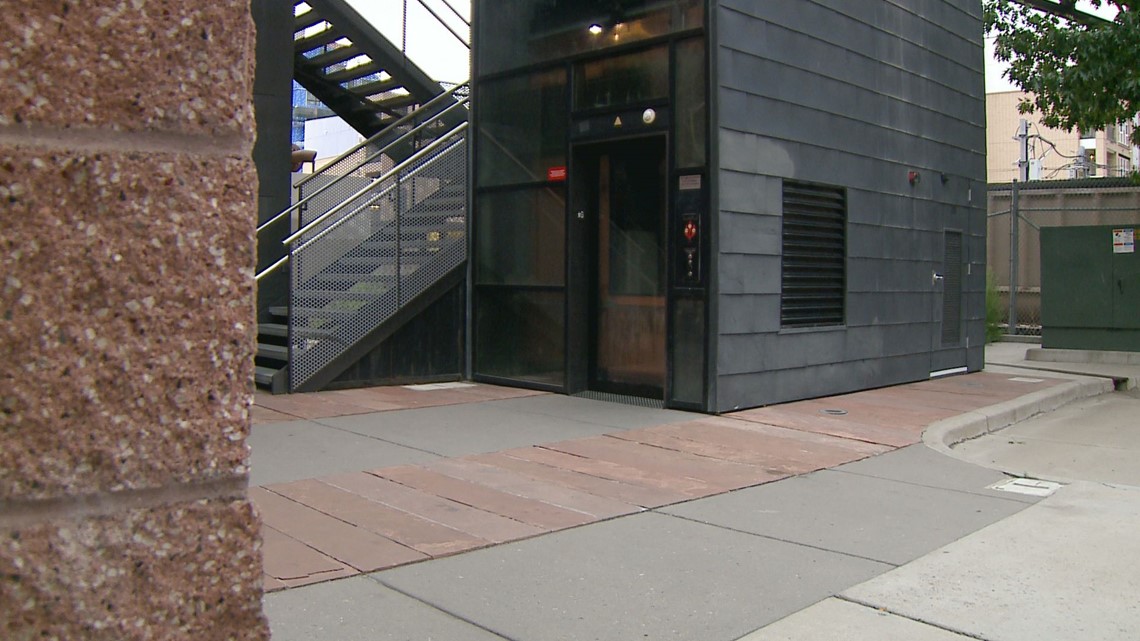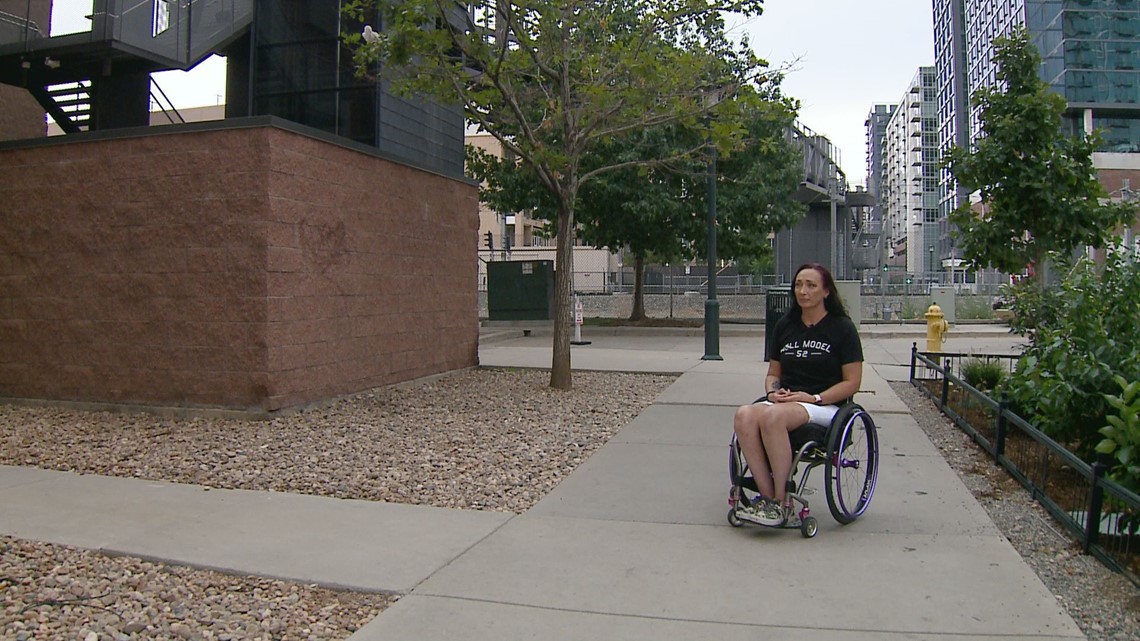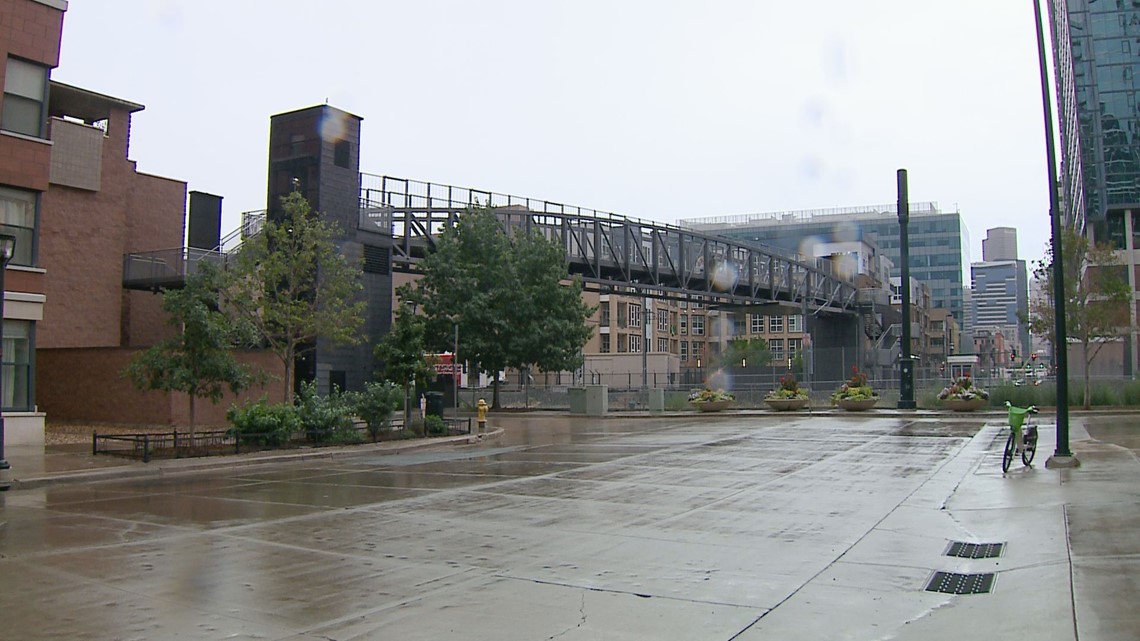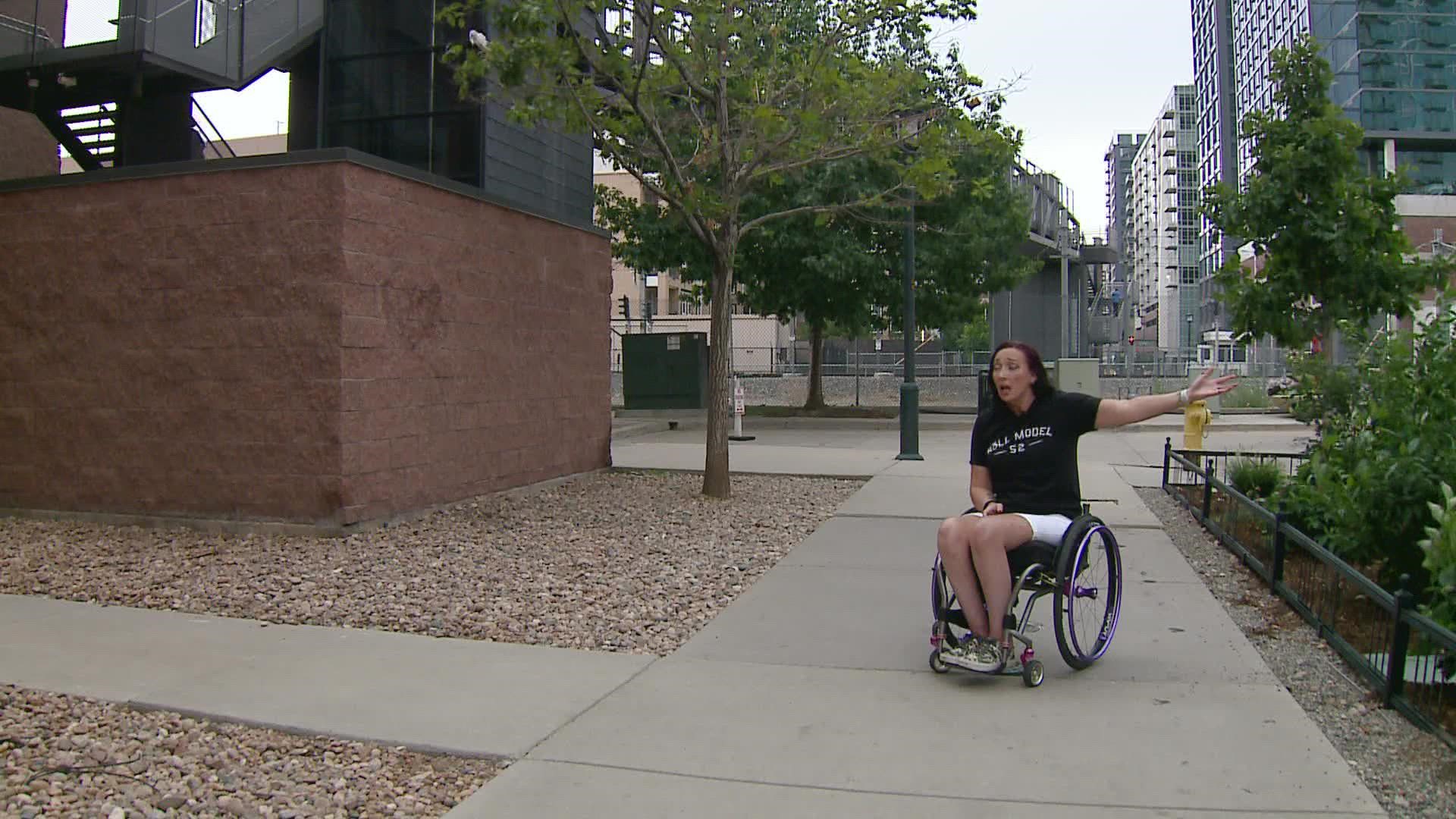DENVER — For Amy Van Dyken, the route to get to a place as important as the nearest grocery store, is vital.
The route includes a pedestrian bridge at 18th Street right next to where she lives, that crosses over train tracks and provides access to a nearby Whole Foods and Union Station.
“Once a week, every week, but if I have to go grocery shopping it can be two, three times a week," she said, referring to the number of times she uses the crossing.
Van Dyken, a former Olympian and gold medalist, was paralyzed in an ATV accident in 2014, and has to use the elevators at the bridge to access it.
“If this bridge is accessible, it’ll take me 5 minutes to go from my front door, to whole foods. If this is closed, it will add another half a mile to a mile and a half," she said.
Closures have become too common for Van Dyken. She says the elevator has been shut off starting at 7 p.m., until 7 a.m. the next morning.
“I’m not the only person that lives in a wheelchair in this neighborhood – there’s a retirement community as well, plus we’ve got moms in strollers – it makes a huge difference not just for me but for everybody," she said.


That difference means having to access other pedestrian bridges, and Van Dyken says the elevators there can sometimes be broken.
“So then the options are going under the overpasses which, you know, at night as a single girl usually in a wheelchair, it’s not really the best idea," she said.
When Van Dyken began questioning why the elevators near her residence were shut off overnight, she received a response from A.J. Zabbia, who said they were contacting Van Dyken on behalf of the Central Platte Valley Metro District (CPVMD) as the District Engineer, 68West Inc.
CPVMD operates and maintains the bridge and elevators in question.
Zabbia wrote that the schedule to have the elevators shut down at night was instituted for "safety and hygiene purposes," and in response to, "significant concern raised by and on behalf of the residents of the adjacent buildings and general population of Riverfront Park."
Van Dyken shared the email response on social media.
The email goes on to say that the decision was made after discussions at the District Board meeting with security staff, engineering and management consultants.
"At that time, the elevators were a gathering place for drug addicts, homeless vagrants, lewd activities and significant vandalism, resulting in a highly dangerous and volatile environment," the email read in part, adding that there were numerous complaints. "The purpose of the overnight closures was to stop obscene behavior and crime from happening in the elevators during the overnight hours."
However, Van Dyken said the shutdown of the elevators are a violation of her rights, specifically of the Americans with Disabilities Act of 1990 (ADA).
“Under the ADA law, it says, I need to get around as well as you can," she said.


"We do understand that the nightly shutdowns are inconvenient and frustrating for you and some residents, but we want to assure you that there are other access points across the rail lines," the email read in part.
“Basically saying we’re sorry that you have a minor inconvenience. I mean this is definitely more than a minor inconvenience," Van Dyken said in response.
She says that this points to a larger issue with the ADA law.
“This points to a very large issue absolutely. We as a disabled community are a minority but we haven’t spoken out to help ourselves," she said. “I just want people to think about humans that have to have different mobility devices and mobility challenges."
In a statement to 9NEWS Saturday night, Anna Jones, the Manager of CPVMD said in part, "Since the pandemic caused a decrease in use and activity in the area significantly as folks started working remotely, the presence of drug use and related behaviors in the Valley has increased dramatically."
Jones said they had invested in security, but, "even with our major investment in security - private security, off-duty Denver police and monitored cameras in the elevators - it proved impossible to properly manage illegal and unsafe activity. Therefore, the District took the action to close the elevators only during the nighttime hours, reopening them in the morning, in an effort to seek a solution."
Starting Saturday night, Jones explained over the phone to 9NEWS that they will be shifting the hours of the elevators being shut down to 10 p.m. to 7 a.m.
Next week, Jones plans to "regroup" with the district's attorney, as well as the board to discuss the matter.


Julie Reiskin, the co-executive director of the Colorado Cross Disability Coalition, believes the issue not only violates ADA law, but generalizes the image of those experiencing homelessness.
“I think this increases the divisiveness that’s already really really corroding our society, it sends the wrong message," she said.
She adds that they're seeing similar issues being brought to their attention more frequently, but "not terribly often."
9NEWS Legal Expert Scott Robinson explained that the issue is multi-faceted.
One of which includes the bridge's proximity to Union Station.
"Because Union Station is a public transportation hub, it is by law protected for people with disabilities. They have to have fully equal access," Robinson said. "If you can't climb the stairs and take the bridge and have to go even a block out of your way, you're violating the ADA."
Robinson also said that since the district is a public entity, they are "absolutely required" to comply with the ADA.
"And that means making all reasonable accommodations to make sure that people with disabilities have the same access to Union Station as people who are not unfortunately saddled with a disability," he said. "The only defense is that it is not something that can be readily changed. It is not a reasonable accommodation to require the elevator to continue running and that is completely inconsistent with the spirit and the letter of the ADA statue."
SUGGESTED VIDEOS: Latest from 9NEWS

